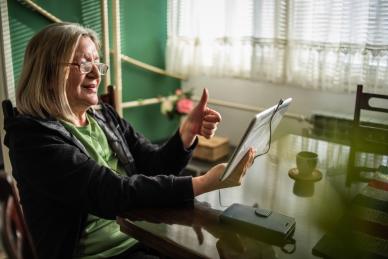
Music Appreciation: The Music of the Parisian Belle Epoque: The Innovations of the French Composers
Course details
Course code
Q00017603Course date
Number of classes
6 sessionsTimetable
Branch
WallingfordTutor
Christopher CarterFee range
How you'll learn
Venue
Storton Lodge (Goring)Icknield Road
Goring-on-Thames
Goring
RG8 0DL
Level of study
Entry Levels 1,2,3: If you have never studied this subject before and you’re not confident in your skills, Entry levels are a good starting point.
Level 1: Covers basic skills and knowledge needed for this subject
Level 2: Building on basic knowledge or experience. Similar to Grade 4/ C at GCSE or O level in England or Standards in Scotland.
Level 3: Learn about the topic in-depth and have a broad range of skills. Independent working Equivalent to an A level in England or Higher in Scotland.
Beginners: A perfect introduction if you have no experience and skills in this subject.
Improvers: The next step if you have basic skills or knowledge but want to progress them further.
Advanced: Build on the solid experience and skills you have in this subject, applying your skills and knowledge in a more complex way.
Course overview
Course description
A period as short as 50 years means that our French composers were all contemporaries. Our course will therefore see them crossing between sessions, more emphasis being placed perhaps on genres than sequential narrative. We start in 1870 and France’s wartime defeat, when anti-German sentiment and the love-hate relationship with Wagner came to a head. You will learn how an initiative to train native-born composers and defy the stuffy stranglehold of the Paris Conservatoire emerged, with influential teachers like Saint-Saens and Faure in the lead. Meanwhile, Offenbach and Bizet turned from light to more serious music, each significantly raising international standards. You will then see how a more revolutionary challenge came from Debussy. Ignoring all conventions, he developed a sound world based on Far Eastern tonality and the symbolism of Verlaine and Mallarme. Though hating the word Impressionism, uniquely sensual harmonies and effects are his hallmark. Though you may hear them as similar, Ravel’s music demonstrates more limpid restraint, elegance and formality. Because of his Basque heritage, he was also one of many influenced by Spain.
-
What financial support is available?
-
We don't want anything to stand in your way when it comes to bringing Adult learning within reach so if you need anything to support you to achieve your goals then speak to one of our education experts during your enrolment journey. Most of our courses are government funded but if you don't qualify or need alternative financial help to access them then let us know.
-
What other support is available?
-
All of our digital content, teaching and learning activities and assessments are designed to be accessible so if you need any additional support you can discuss this with the education experts during your enrolment journey and we will do all we can to make sure you have optimal access.

